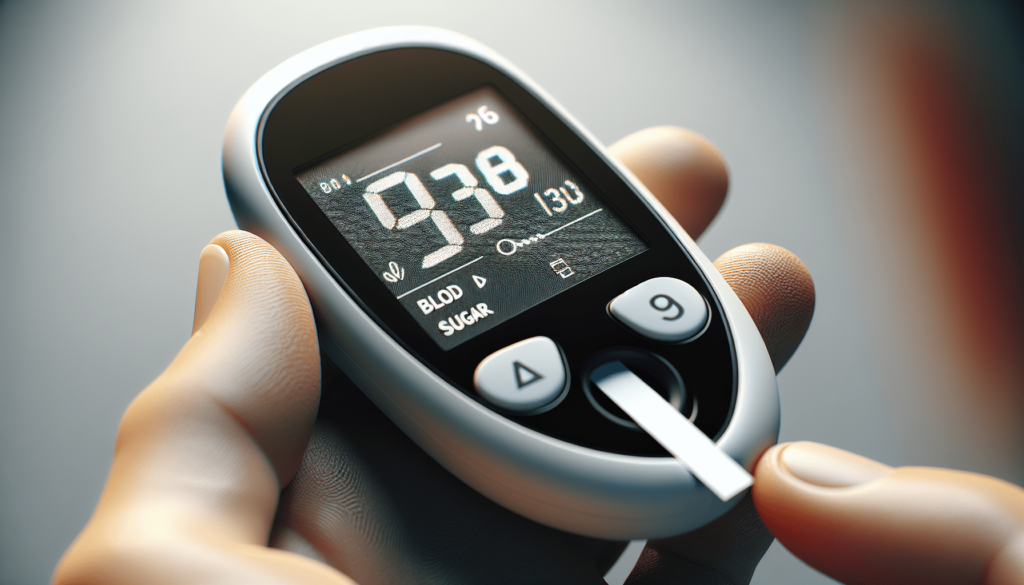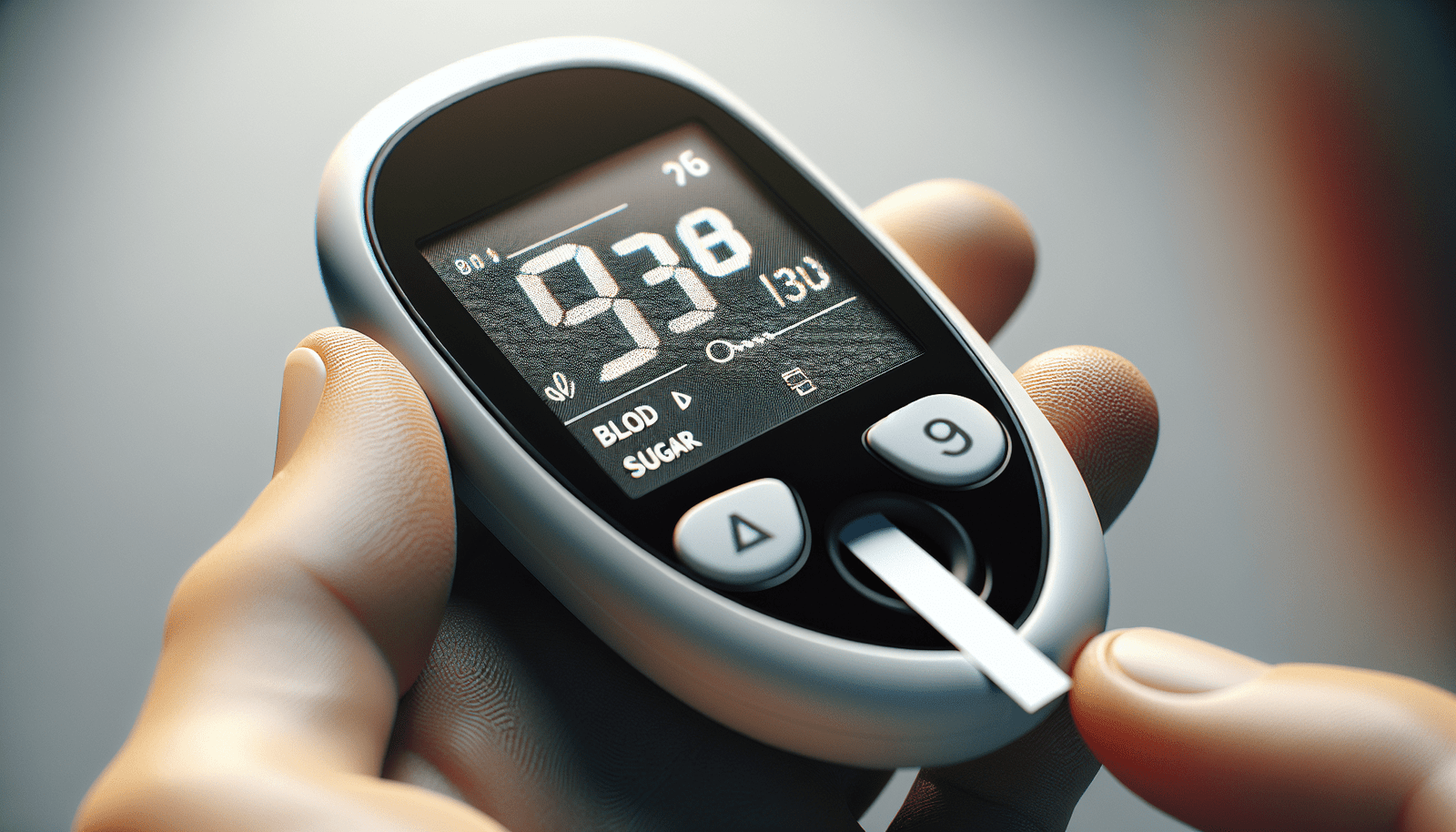Diabetes Management In Primary Care
Have you or a loved one been diagnosed with diabetes? Managing diabetes can be overwhelming, but with the right strategies and support from your primary care provider, you can live a healthy and fulfilling life. In this article, we will discuss the importance of diabetes management in primary care and provide you with practical tips to help you better manage your condition. Let’s dive in!
Understanding Diabetes
Before we delve into diabetes management, let’s first understand what diabetes is. Diabetes is a condition that affects how your body uses glucose, a type of sugar that serves as a crucial source of energy for your cells. There are two main types of diabetes: type 1 and type 2.
Type 1 diabetes is an autoimmune condition where the body’s immune system mistakenly attacks and destroys the insulin-producing cells in the pancreas. Without enough insulin, glucose builds up in the bloodstream and cannot enter cells for energy. People with type 1 diabetes need to take insulin injections to survive.
Type 2 diabetes, on the other hand, is a metabolic disorder characterized by insulin resistance, where the body’s cells do not respond effectively to insulin. Over time, the pancreas cannot keep up with the increased demand for insulin production, leading to high blood sugar levels. Type 2 diabetes is often associated with lifestyle factors such as obesity, physical inactivity, and poor diet.
Understanding the type of diabetes you have is crucial for determining the most appropriate management plan. Your primary care provider will work with you to develop a personalized approach based on your medical history, lifestyle, and treatment goals.
Importance of Diabetes Management in Primary Care
Managing diabetes is essential to prevent complications and improve your quality of life. When left uncontrolled, diabetes can lead to serious health issues such as heart disease, stroke, kidney disease, nerve damage, and vision problems. By working closely with your primary care provider, you can effectively monitor and manage your condition to reduce the risk of complications.
Your primary care provider plays a critical role in diabetes management by providing regular check-ups, monitoring your blood sugar levels, adjusting your treatment plan as needed, and offering guidance on healthy lifestyle habits. By establishing a partnership with your primary care team, you can receive comprehensive care that addresses your physical, emotional, and social needs.
Benefits of Diabetes Management in Primary Care
Managing diabetes in primary care offers numerous benefits, including:
- Regular monitoring of blood sugar levels to prevent spikes and dips that can impact your health
- Individualized treatment plans tailored to your specific needs and goals
- Access to a multidisciplinary team of healthcare professionals, including doctors, nurses, dietitians, and pharmacists
- Support for managing lifestyle factors such as diet, exercise, stress, and sleep
- Education on how to recognize and respond to signs of high or low blood sugar
- Coordination of care with specialists for more complex diabetes-related issues
By actively participating in your diabetes management plan with your primary care provider, you can take control of your health and improve your overall well-being.

Tips for Effective Diabetes Management
Effective diabetes management involves a combination of medication, lifestyle changes, monitoring, and regular check-ups. Here are some practical tips to help you better manage your diabetes in primary care:
1. Monitor Your Blood Sugar Levels Regularly
Regular blood sugar monitoring is essential for understanding how food, physical activity, and medications affect your glucose levels throughout the day. Your primary care provider will recommend how often you should check your blood sugar and provide guidance on target ranges.
2. Follow a Healthy Meal Plan
Eating a balanced diet that is rich in fruits, vegetables, whole grains, lean proteins, and healthy fats can help you maintain stable blood sugar levels and manage your weight. Your primary care provider may refer you to a registered dietitian for personalized nutrition counseling.
3. Stay Active
Physical activity is key to managing diabetes and improving insulin sensitivity. Aim for at least 150 minutes of moderate-intensity exercise per week, such as brisk walking, swimming, or cycling. Consult with your primary care provider before starting a new exercise routine.
4. Take Your Medications as Prescribed
If you have been prescribed medication to manage your diabetes, it is important to take them as directed by your primary care provider. Missing doses or adjusting your medications without medical supervision can lead to complications.
5. Manage Stress and Prioritize Sleep
Stress and lack of sleep can impact your blood sugar levels and overall health. Practice stress-relieving techniques such as deep breathing, meditation, yoga, or spending time in nature. Aim for 7-8 hours of quality sleep each night to support optimal health.
6. Attend Regular Check-Ups
Regular visits to your primary care provider are crucial for monitoring your diabetes, adjusting your treatment plan, and addressing any concerns or questions you may have. Be proactive about scheduling and attending your appointments.
7. Engage in Self-Care Activities
Taking care of your mental and emotional well-being is just as important as managing your physical health. Find activities that bring you joy, relaxation, and fulfillment, such as hobbies, socializing with friends, or spending time in nature.
By incorporating these tips into your daily routine and working closely with your primary care provider, you can establish a solid foundation for effective diabetes management and improved quality of life.
Diabetes Medications and Treatments
In addition to lifestyle changes, diabetes management may involve the use of medications to control blood sugar levels and reduce the risk of complications. There are several types of diabetes medications available, each with unique mechanisms of action and potential side effects. Your primary care provider will determine the most appropriate medications based on your type of diabetes, medical history, and treatment goals.
Oral Medications
For people with type 2 diabetes, oral medications may be prescribed to help lower blood sugar levels and improve insulin sensitivity. Some common classes of oral medications include:
- Metformin: This first-line medication helps lower blood sugar levels by reducing glucose production in the liver and improving insulin sensitivity in the muscles.
- Sulfonylureas: These medications stimulate the pancreas to release more insulin and are often used in combination with other diabetes medications.
- DPP-4 inhibitors: These medications help lower blood sugar levels by blocking an enzyme that breaks down incretin hormones responsible for insulin secretion.
Injectable Medications
For individuals with type 2 diabetes who require additional support in managing their blood sugar levels, injectable medications such as insulin or GLP-1 receptor agonists may be recommended. These medications are administered via injections and work to regulate glucose levels in the body.
- Insulin: Insulin therapy is essential for people with type 1 diabetes and may be prescribed for individuals with type 2 diabetes who cannot achieve optimal blood sugar control with oral medications alone.
- GLP-1 receptor agonists: These injectable medications stimulate the production of insulin, reduce glucagon secretion, and slow gastric emptying to help regulate blood sugar levels.
Hypoglycemic Agents
In addition to medications that lower blood sugar levels, hypoglycemic agents may be prescribed to prevent and treat episodes of hypoglycemia (low blood sugar). These medications can help raise blood sugar levels quickly in emergency situations.
- Glucagon: Glucagon is an injectable hormone that rapidly raises blood sugar levels in the event of severe hypoglycemia when a person with diabetes is unable to eat or drink.
Your primary care provider will carefully evaluate your individual needs and preferences when selecting the most appropriate medications and treatments for managing your diabetes effectively.

Monitoring Blood Sugar Levels
Regular monitoring of blood sugar levels is a critical aspect of diabetes management that allows you and your healthcare team to track your progress, adjust your treatment plan, and make informed decisions about your care. There are several methods for measuring blood sugar levels, including:
Blood Glucose Meters
Blood glucose meters are portable devices that measure your blood sugar levels from a small drop of blood obtained by pricking your fingertip. The meter displays your glucose reading within seconds, allowing you to monitor your levels throughout the day and make adjustments as needed.
Continuous Glucose Monitors (CGMs)
Continuous glucose monitors are wearable devices that provide real-time glucose readings by sensing glucose levels in the fluid surrounding your cells. CGMs offer continuous monitoring of your glucose levels, alerts for high or low blood sugar, and insights into trends over time.
Hemoglobin A1c Test
The hemoglobin A1c test, also known as the A1c test or glycated hemoglobin test, measures your average blood sugar levels over the past 2-3 months. This test provides an overall picture of your glucose control and helps guide treatment decisions for managing your diabetes.
By regularly monitoring your blood sugar levels through these methods and sharing the results with your primary care provider, you can work together to optimize your diabetes management plan and achieve your treatment goals.
Preventing Diabetes Complications
One of the primary goals of diabetes management is to prevent complications and maintain your overall health and well-being. People with diabetes are at increased risk for a range of complications, including heart disease, stroke, kidney disease, nerve damage, vision problems, and foot issues. By taking proactive measures to manage your diabetes effectively, you can reduce the risk of complications and improve your quality of life.
Tips for Preventing Diabetes Complications
Here are some key strategies for preventing complications and promoting better health outcomes:
- Control your blood sugar levels within the target range recommended by your primary care provider
- Monitor and manage your blood pressure and cholesterol levels to reduce the risk of heart disease and stroke
- Maintain a healthy weight through a balanced diet, regular physical activity, and portion control
- Quit smoking and limit alcohol consumption to lower your risk of cardiovascular disease and other complications
- Attend regular eye exams, foot exams, and dental check-ups to detect and address potential problems early
By staying proactive about your diabetes management and following your primary care provider’s recommendations, you can minimize the risk of complications and enjoy a healthier and more fulfilling life.
Lifestyle Factors and Diabetes Management
In addition to medication and monitoring, lifestyle factors play a crucial role in diabetes management and overall well-being. Making healthy choices around diet, exercise, stress management, sleep, and self-care can significantly impact your diabetes control and quality of life. Your primary care provider can offer guidance and support in developing positive lifestyle habits that promote optimal health.
Diet and Nutrition
Following a healthy meal plan that emphasizes whole foods, fiber-rich fruits and vegetables, lean proteins, and heart-healthy fats is essential for managing your blood sugar levels and supporting your overall health. Working with a registered dietitian can help you create a personalized nutrition plan that meets your dietary preferences and cultural needs.
Physical Activity
Regular physical activity is integral to managing diabetes, improving insulin sensitivity, and maintaining a healthy weight. Aim for a combination of aerobic exercise, strength training, and flexibility exercises to support your overall fitness and well-being. Consult with your primary care provider before starting a new exercise regimen.
Stress Management
Chronic stress can negatively impact your blood sugar levels and overall health, making stress management an important aspect of diabetes care. Practices such as mindfulness meditation, yoga, deep breathing exercises, and spending time in nature can help you reduce stress and improve your emotional well-being.
Sleep Hygiene
Quality sleep is essential for optimal health and blood sugar control. Establishing a regular sleep routine, creating a restful sleep environment, and practicing relaxation techniques can support healthy sleep patterns and overall wellness. If you experience sleep disturbances, discuss them with your primary care provider.
Self-Care Practices
Engaging in self-care activities that bring you joy, relaxation, and fulfillment is vital for managing stress, promoting mental health, and improving your overall well-being. Find hobbies, interests, and activities that nourish your mind, body, and soul to enhance your quality of life.
By prioritizing these lifestyle factors and integrating them into your daily routine, you can enhance your diabetes management efforts and cultivate a healthier and more balanced lifestyle.
Conclusion
In conclusion, diabetes management in primary care is a collaborative process that involves close partnership between you and your healthcare team. By understanding your diabetes, following your treatment plan, monitoring your blood sugar levels, and making healthy lifestyle choices, you can effectively manage your condition and reduce the risk of complications. Remember to attend regular check-ups with your primary care provider, communicate openly about your concerns and goals, and seek support when needed. Together, you can navigate the challenges of diabetes and work towards a healthier and more fulfilling life. Thank you for reading and empowering yourself with knowledge about diabetes management in primary care.


